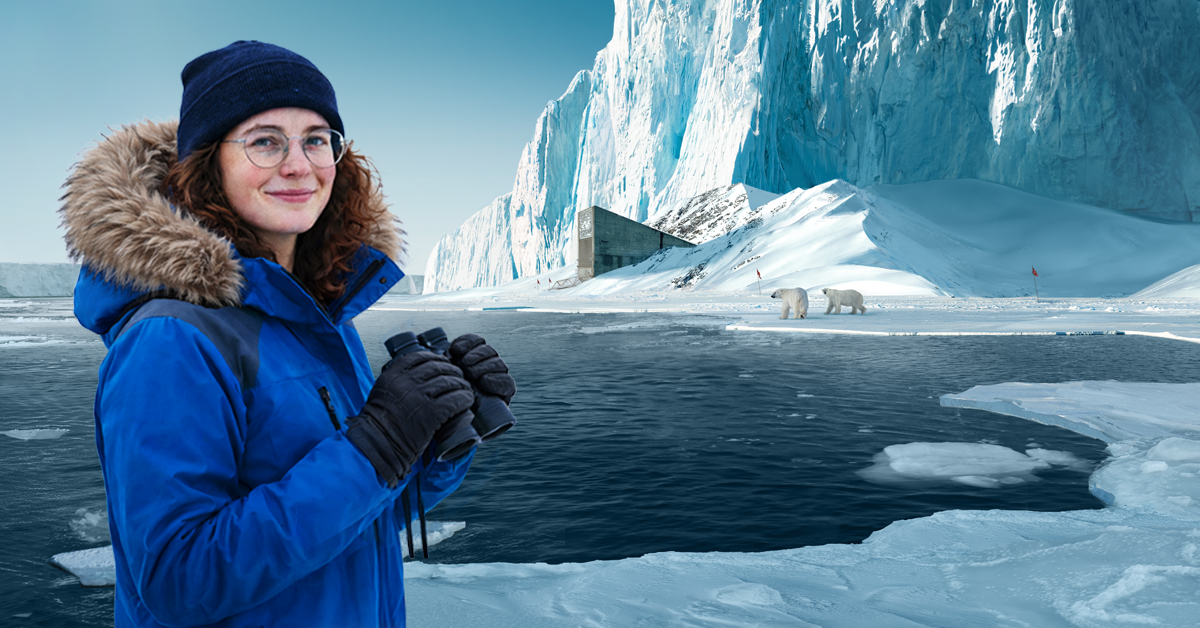
Six lessons to be learned from the art of fishing
We cast our rods into the watery unknown, where the hook sinks deeper, offering us only the promise of a catch. The result? Often, there’s none. Despite this inherent uncertainty, some of us still treat fishing as a hobby, a leisure activity, while others consider it a passion or even their calling. United in the simple act of fishing, we all take something different from it – each experience as unique as the hands that hold the rod.
While Fishing Clash, our fishing game, takes us to various places around the world, and offers an abundance of activities to enjoy alone or with friends, it all always results in our casting of the rod and, hopefully, catching the fish. In Fishing Clash, if we’re skilled enough, the fish bite pretty regularly, so we often have a reason to dive into the game. Even more so if we ever decide to visit the TSG.STORE to stock up on extra gear! But reeling in a catch isn’t always the case when fishing in real life. And while everyone has their reasons behind taking up this wonderful hobby, there are several lessons to be learned through the very act of fishing. Let’s explore them together in today’s fishingclash.game article!
Fishing: the art of connecting to nature
While the virtual experience of fishing is a satisfying one, allowing us to take a breather from our busy lives, real-life fishing remains an outdoor activity, which encourages us to step beyond the comforts of our homes. Nowadays, it looks like everything we do needs a clearly-defined purpose, a solid reason existing within the various (often exhausting) norms of productivity. So, fishing may serve as just that: motivation to leave the house. After all, sometimes just the desire to regenerate isn’t enough, as there needs to be a concrete goal.
It can be as simply defined as just going fishing. Not catching anything in particular or in any set quantity. Not reeling in a long-lost species or breaking world records. Just going outside with our rod and some bait. Once we reach our nearby body of water, our favorite fishing spot, we feel an irresistible pull. The tranquility and liveliness of the outdoors invite us to become a part of nature’s cyclicity, even if only for a moment. We learn these cycles through observing and just immersing ourselves in them – whether or not we’re holding our rods (or, perhaps, thanks to them?). In return, we may be lucky enough to learn and accept the changes occurring naturally within us and in our day-to-day lives. Nature’s great message for us is understanding that peak performance is just that – a peak and not a given. It allows for more leniency and compassion for ourselves and others. Should we fail to catch even the smallest of fish, we may still return home enriched, at least to some degree!
Fishing: the art of hope
The act of fishing teaches us something seemingly insignificant, but quite profound if we apply it to other areas of our existence: the importance of hope. Not every cast yields a catch, but without the conviction that it might, we wouldn’t even try. Fishing, ultimately, is the purest act of hope, as it requires not only a positive attitude but also effort toward the outcome. Hope itself consists of two elements: the mindset and the action required to make something happen.
Hope, however, isn’t just blind optimism. It’s grounded in preparation and effort. When fishing, we choose the right bait, adjust our technique, and patiently read the environment. These small, deliberate actions embody the belief that our efforts can influence the outcome. Similarly, in life, hope thrives not in passivity but in the quiet persistence of trying, even when success feels uncertain. Fishing reminds us that hope is not just a feeling but a practice: a willingness to act despite the unpredictability of results.
Fishing: the art of patience
This uncertainty of the outcome is often the crux of why we find fishing so captivating. We hope we’ll reel in a catch, sure, but to get there, we need to try, fail, and try again. We know we might eventually succeed, but it won’t happen with the very first attempt. We realize that sometimes, even the best preparation and perfect conditions are not enough, and that there’s one fleeting factor in every success story: luck. Luck itself seems to be an outdated concept in our times of meritocracy – when we believe that our success is nothing more but our own doing. But, as some passionate Anglers will admit, luck also plays a great part in this hobby.
Still, luck can be outplayed by continuous efforts, whether in fishing or any other area of life. Here, patience is key. We can sometimes outsmart Lady Luck (also known as the goddess Fortuna in Ancient Rome) if we keep trying our best. A successful catch is never guaranteed, but its probability can be upped thanks to patience and perseverance. This is yet another lesson pulled out of the depths of our fishing passion. Another one that seems applicable in more areas than just the hobby itself.

Fishing: the art of staying in the present
Presence, understood as being immersed in the moment, is increasingly hard to come by in these times of multiple distractions available at the swipe of our fingertips. There have been numerous debates about our ability to focus, multitasking, and presence as such. There are also many proposed solutions to the issue of focus (or the lack thereof), such as meditation, social media detoxes, hikes in nature, and everything in between. Undoubtedly, we humans have only one so-called locus of attention, the point through which we can process information and sensory input. We may foster it instead of trying to be everywhere all at once, and just learn to be here, fully.
Fishing, again, comes as a helpful way of learning and developing our ability to immerse ourselves in the moment that we’re in, without necessarily being pulled away by things that demand our focus. The truth is that currently, everything seems to vie for our attention, and this gravitational pull feels never-ending and unyielding. Through fishing trips, we learn that most of the world’s problems will still be there, waiting for us once we return. And when we do, we may just be able to tackle some of them in a more centered manner. This could very well be a lesson about quality over quantity. After all, one great catch is often better than multiple tiny ones!
Fishing: the art of balancing control and surrender
The longer we stick around, the more we start to realize that in some ways, life is all about balance. The areas where finding harmony is key are too many to list here, but a general thought behind this particular lesson is that from time to time, life throws at us things out of our control. Sometimes, we need to act and manage the situation, but other times, the best course of action is acceptance. Learning how to decide when to act and when to submit is a life-long task in itself, but fishing is an excellent example of the process. On some days, the fish are not biting. On other days, they are, and so, we try to reel them in. Whether we do that successfully also depends on our ability to tighten or loosen the line. Too much tension will break it. Not enough will allow the fish to escape.
Yet even in the selection of a fishing spot, we face the question: how long should we try? Sometimes, as we believe, the catch is almost there. We spend hours bound to our initial decision, relying on patience, trusting in hope. Will it eventually pay off? There’s no way to know until it does. But at times, we have to surrender. When the sun is setting, our stomachs growling, and our families slowly forgetting what we look like. In such cases, giving up may seem like a loss. But is it really? After all, we have shown up. We have done everything within our control.
Fishing: the art of letting go
Letting go may seem similar to surrendering and these terms are often used interchangeably, but there is a nuance to their difference. We surrender to something out of our control and submit to something higher, like the weather conditions during our fishing escapade or the fact that the fish are just not biting. However, letting go – our final fishing lesson for today – involves a conscious choice.
We let go of the fish, realize it’s of no use to us, and decide it’s better off doing more of its fishy business for a little longer. The act of letting go, ultimately, becomes a great gift, as it opens us up to something else. Whether it’s casting our rod again or, outside of fishing, making a different choice. Only when we let go do our hands and attention become free. We’re able to change our choices and work toward new circumstances or new decisions. The final lesson we take from fishing is about choice and change, two most powerful qualities of an excellent life – if we’re lucky enough to be in their presence. Fishing shows us that we might get there if we first allow ourselves to let go.
In the quiet moments spent fishing, we gain insight into how we navigate the world. So, grab a rod and experience it for yourself – sometimes, the best lessons are found on the water!










